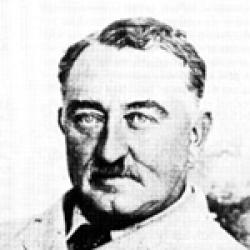
Published date
27 October 1922
Southern Rhodesia (now Zimbabwe) rejected joining the South African Union in a referendum. Voters had to choose between establishing self government, joining the Union of South Africa or continuing under the British South Africa Company (BSAC). The BSAC had governed Southern Rhodesia since October 1889 when it was granted a mining exploration charter by the British government. Its founder Cecil John Rhodes was given permission to explore the area north of the Transvaal with unlimited powers. In 1890 the BSAC founded the town of Salisbury (now Harare) in Mashonaland and named the territory Rhodesia in honour of Cecil John Rhodes. From 1890 the company operated as the government of Southern Rhodesia until 1923. In 1898 a governing body called the Legislative Council was established with members of the BSAC dominating the body.
In 1910 the Union of South Africa was formed bringing together former Afrikaner Republics and the Cape Colony. South Africa was granted self governing status as a colony within the larger British set of colonies. This resulted in the division of opinions for settlers in Southern Rhodesia. As early as 1914 the Legislative Council considered the question on whether it was prudent for the BSAC to continue as governing body of the colony, or should the colony join the Union of South Africa. This was postponed as a result of the outbreak of the First World War. After the elections in April 1920, there was strong push for the need to decide on whether for Southern Rhodesia should become a British colony with self governing status or merge with the Union. In May 1920 the Legislative Council pushed for resolution of the issue.
A Commission was established by the British government under the leadership of Earl Buxton. Some representatives from Southern Rhodesia visited Cape Town to consult the Jan Smuts led government on terms which they could be admitted to the Union of South Africa. Other representatives went to London to push for establishment of self government and negotiate the terms of self government. This culminated in a referendum on 27 October 1922 where the white settler minority overwhelmingly voted against merging with the Union of South Africa. In 1923 Southern Rhodesia became a crown colony with self governing status limited to white settlers.
References
Michael Brecher & Jonathan Wilkenfeld, (1997), A Study of Crisis, (University of Michigan Press), p.103.|
Martena Tenney Sasnett & Inez Hopkins Sepmeyer, (1966), Educational systems of Africa: interpretations for use in the evaluation of academic credentials, (Cambridge University Press), p. 918.|
Anon,;Rhodesia and the Central African Federation from the National Archives, Cabinet Papers 1915-1979, online Available at www.nationalarchives.gov.uk[Accessed 19 October 2010]